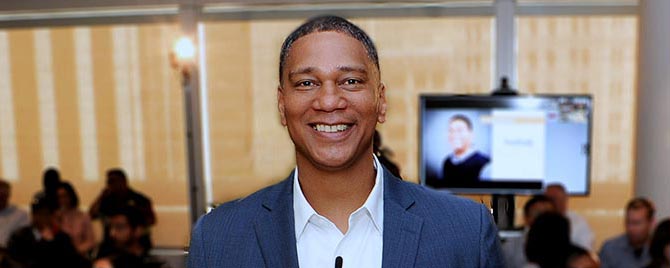Kenyatta Leal is an operations manager for San Francisco-based RocketSpace, co-working campuses for tech startups. His other job? Board member and evangelist for The Last Mile, an organization that helps incarcerated men and women prepare for successful reentry through business and technology training.
The Last Mile piloted its Code.7370 program at the San Quentin State Penitentiary in 2014. Now in four California prisons, it teaches computer coding skills to inmates.
“What we’re doing right now is teaching men and women on the inside how to code, so when they get out they can have a 21st-century job skill and enter the job market,” Leal explained in a recent interview with the San Francisco Fed.
California inmates don’t have the ability to access the internet, so The Last Mile partnered with Hack Reactor coding bootcamps to build a proprietary system to teach code that simulates real-world interactions. Program graduates have the opportunity to build products for tech companies through a partnership with the California Prison Industry Authority (CalPIA), which sources everything from desks to soap to coffee for the prison system.
“We’ve been working with Slack. We’ve been working with Facebook. We’ve been working with some other really great tech companies,” says Leal.
Wages are much higher than typical prison jobs. This helps people pay their county and state restitution fines, and build savings for when they’re released.
“The men and women inside are earning $15-$20 per hour for these jobs. This is significant because most prison jobs on the inside pay pennies on the dollar,” says Leal.
The former San Quentin inmate earned his Associate of Arts degree during his own incarceration, graduating class valedictorian with straight A’s, and was one of the first to participate in The Last Mile program. In fact, Leal met the CEO of RocketSpace while pitching his business idea through The Last Mile, which led to a paid internship upon his release and promotions to his current management position.
“The Last Mile provided me a framework for change. It helped me transform my hustle in a positive direction, and provided me with a support system that started on the inside and has carried over to the outside,” he says.
Leal believes education and job training are imperative for a successful reentry.
“We hear a lot about the recidivism rates. I think, in California, they’re over 60%. But what about the 40% that never come back? If they can do it, then other people can, too. If there are more resources in place, not just on the front end for locking people up, but dedicated to when they get out, or while they’re in, to help them get out and stay out, that’s where change can happen,” he says.
Tune into the San Francisco Fed’s Does College Matter? podcast to hear Leal’s story of prison and redemption, and to learn more about The Last Mile.
Listen to this and past episodes, or subscribe to future episodes of Does College Matter? on iTunes, Stitcher, and TuneIn.
Does College Matter? is produced by the SF Fed Education & Outreach team and hosted by Director Jody Hoff as part of their college and career readiness initiative.
You may also be interested in:
- College, Careers for At-risk SF Bay Area Teens
- Breaking the Generational Curse of Incarceration
- Why the Fed Cares about Reentry of Ex-Offenders: Leveraging AB 109
- Twice Around podcast
- Pacific Exchanges podcast
Please note, quotes have been edited for clarity. Views expressed are those of the speaker and do not necessarily reflect the views of the Federal Reserve Bank of San Francisco or of the Board of Governors of the Federal Reserve System.
The views expressed here do not necessarily reflect the views of the management of the Federal Reserve Bank of San Francisco or of the Board of Governors of the Federal Reserve System.
